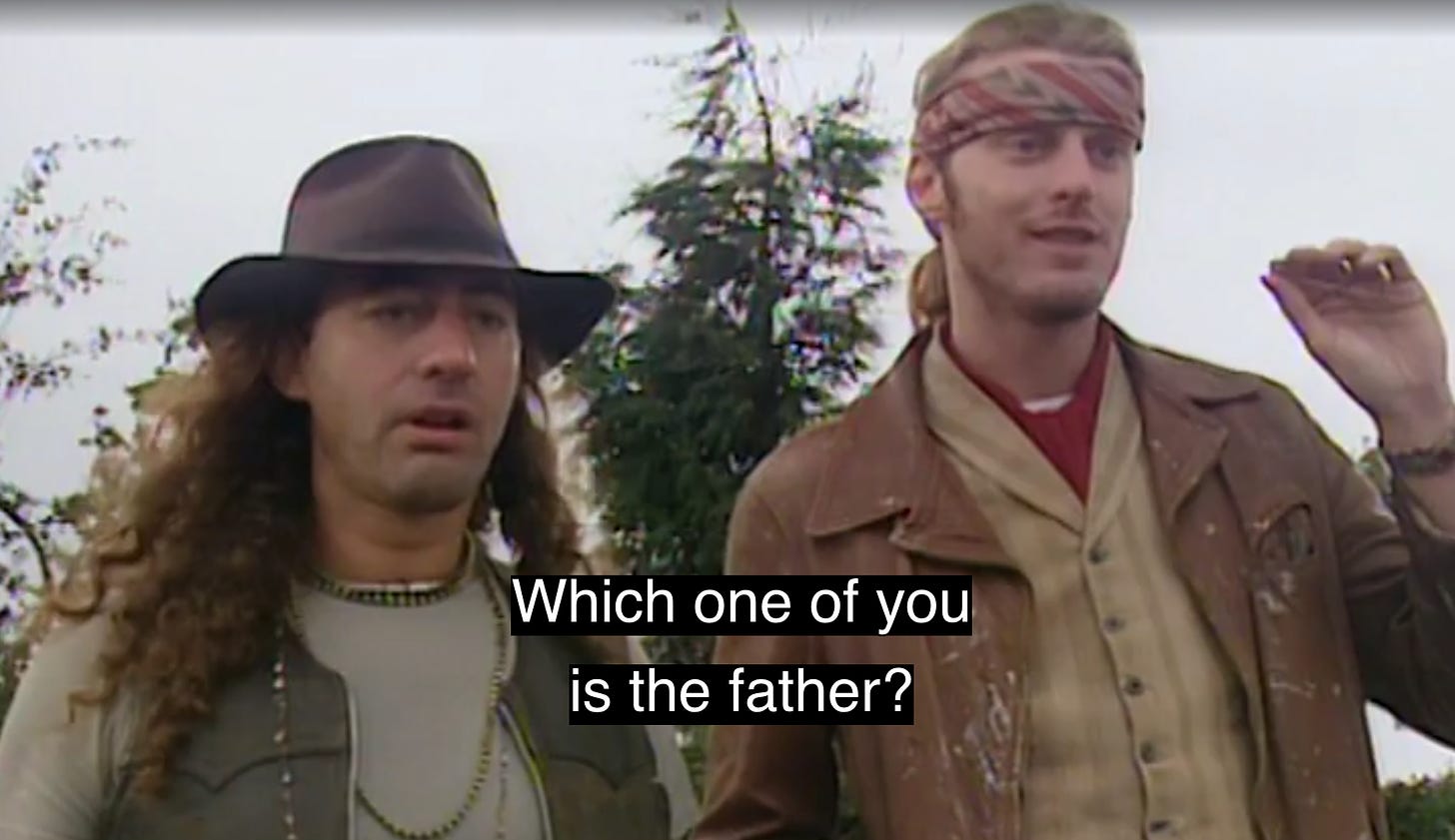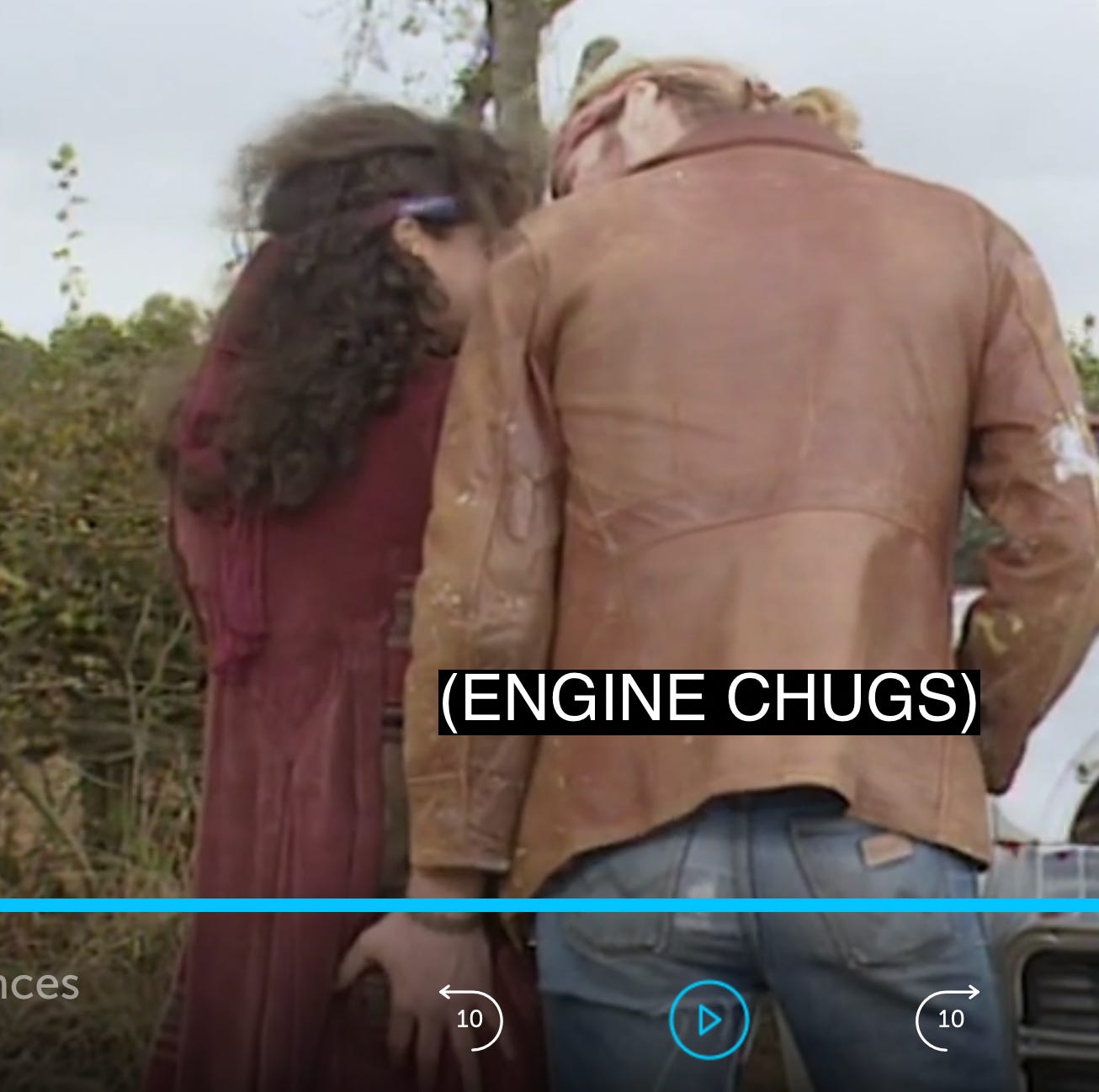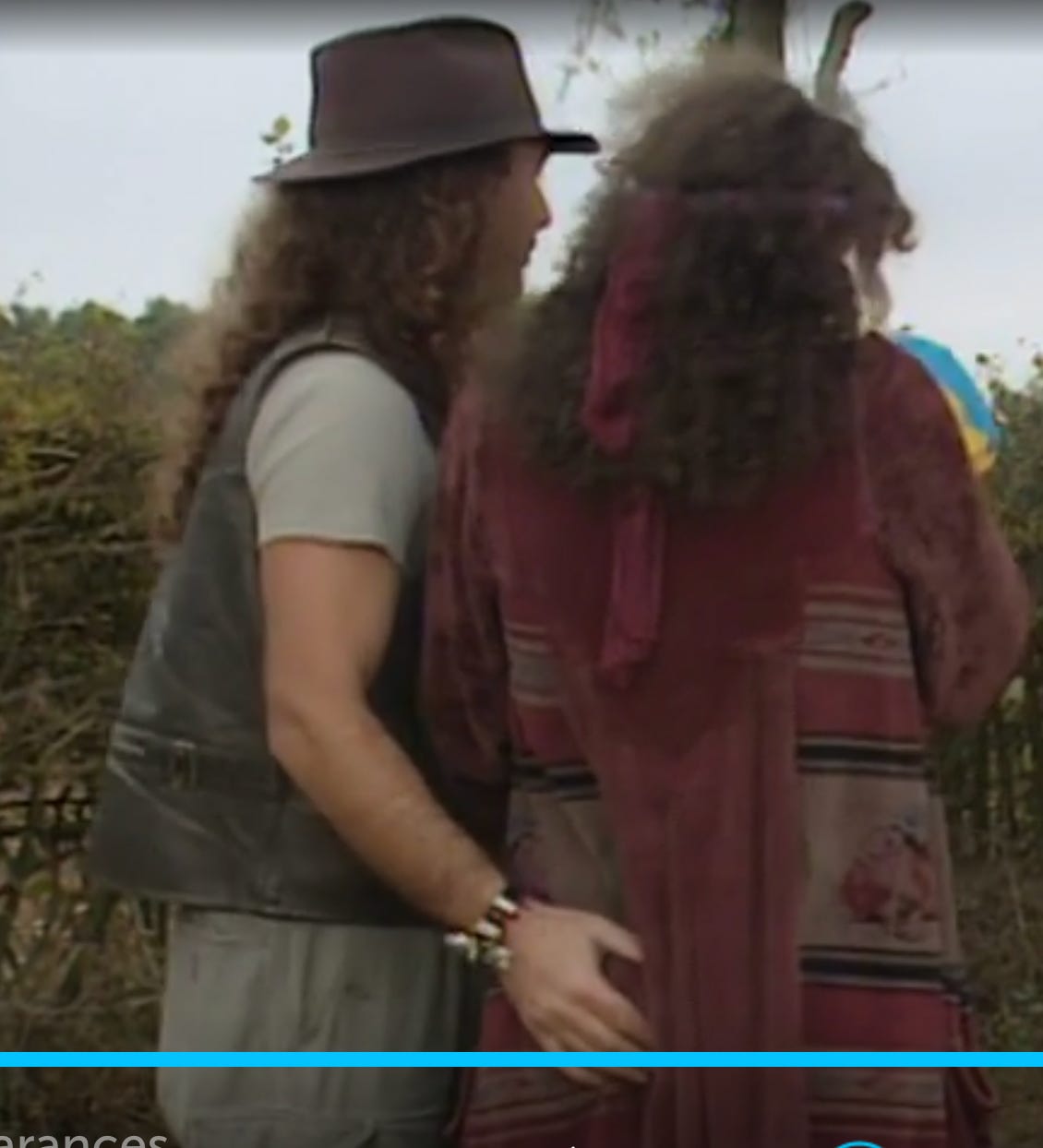There’s that adage about how every generation thinks it invented sex. One is meant to point to the existence of… well, of generations, as evidence that clearly things were going into other things even before apps/going steady/rock’n’roll.
But it’s more than that. It’s also that there are only so many kinds of person out there, only so many ways of understanding yourself, only so many subsets of the rest of the population to be drawn to, to one degree or another.
It’s something else that does change, and I’ll get to it. But first, some television.
I was not prepared for just how much was going on in the Season 1 and therefore relatively-new-to-me Keeping Up Appearances episode, “The Christening.” It’s a wild ride!
But a bit about the episode itself first: It has that Season 1 quality of not seeming like the rest of the show, and not just because it’s the earlier actress playing Rose. They all seem somehow more like a real family, all sitting around in Daisy and Onslow’s house, not like the archetypes they become. The show has not yet introduced the idea that Daisy pesters an uninterested Onslow for sex, or not consistently.
And then there’s the plot point of Daisy and Onslow having an adult daughter, Stephanie, who’s never otherwise mentioned. (There’s a scene where Daisy says something to Onslow along the lines of, remember pushing the pram, so they do acknowledge a kid, but that’s it.)
Anyway, as the episode title suggests, it’s a christening episode, a Britcom standby. Stephanie has had a baby. Hyacinth isn’t too thrilled about going to this christening, not least because the baby’s name is Kylie, which Hyacinth sounds like the word for “a foreign vegetable”—very possibly the first kale reference in sitcom. But more to the point, Stephanie is an unwed mother.
Stephanie’s presented as a woman who got knocked up and whose partner ran off. The audience continues thinking this through most of the episode. There’s then a scene when Daisy or Onslow or maybe both explain that they’ve asked Stephanie to invite “the father” to the christening, and Hyacinth seems relieved.
Hyacinth and husband Richard then wind up having to rescue Stephanie, who’s with her baby and “the father” in an RV that broke down. There turn out to be two men with her. All three are free-love hippies, as indicated by various visuals. Hyacinth wants to know which of the men is the father, but is reluctant to ask outright. Richard observes one of the men grabbing Stephanie’s backside and says he thinks the father must be that man. Hyacinth says she hopes this is the case.
Sure enough, moments later, the other man comes over and does the same.
Each man thinks he’s the father. Hyacinth takes it up with Stephanie directly and—obviously—she doesn’t know which of the two men it was. Her man didn’t abandon her, it’s quite the opposite! She’s been not-ditched by the baby’s two fathers.
Stephanie’s not the only MMF happening afoot. Slutty sister Rose, in the sex-positive sense of the term, feels that attending a christening requires a “male escort,” aka a date, but this is how she puts it. She somehow winds up with two dates, and they’re arguing about which one can sit with her, and she’s all, why not both. Good for old-Rose, who otherwise comes across as more pathetic than new-Rose. At least her final episode has her having some fun.
But then I got to thinking about how the show represents basically everything. Not at the level of Midsomer Murders, where the frumpier the just-introduced character, the more likely there will be a few-seconds-too-long fetish scene featuring this individual, but where the broad categories of human sexuality are concerned, it’s remarkably comprehensive:
Offscreen university-aged son Sheridan is gay. Mrs. Councillor Nugent, asexual with a twist of lesbian. Bruce, sister Violet’s rich husband, is a crossdresser or thereabouts. This is not a show with much emphasis on continuity (nor is Bruce often onscreen) so maybe Bruce is trans in one episode but not in another. Who knows, and who cares! Hyacinth isn’t bothered, as long as he pays the bills on the house that’s got “room for a pony.”
And then there’s Rose, the desperate-romantic sex-crazed sort, a serial monogamist even if she may be monogamous with several men over the course of an episode.
There are men and women on the show, most well into their 50s or beyond, with libidos all over the place. So why not a polyamorous household’s christening? As far as Hyacinth is concerned, it’s undignified, but no more so than using the wrong fork at one of her candlelight suppers.
But what strikes me, thinking about this range of human experience depicted, is that the categories themselves absolutely do change their boundaries according to time and place. Where we used to have archetypes, recognizable sorts of person about whom it would just kind of be understood, ah, someone like that, we now have labels. I’m not saying this as a good or bad thing but am just observing.
A woman like Rose would today either be a husband-seeking, feelings-catching conservative or an ‘I just want dick’ sex-positive sort, not the precise hybrid she is. A man like Bruce would need an identity, and either I’d be misgendering him by calling him “him” or if I failed to do so. Or rather, he could be genderfluid, he/him on some days, she/her on others, but then that would need to be his official category. And a Mrs. Councillor Nugent would need to be gay or asexual or a spelled-out overlap of the two, and not the thing she is, which just doesn’t fit with any of this.





This was really interesting, and I think the core of the issue you're getting at is "representation" vs characters who are singular and human, like real people. "Representation" requires that characters be embodiments/incarnations of everything about the identity they're trying to represent, while also implicitly praising, accepting, and lionizing that identity. So instead of a real-ish person who can be gay and conservative, or traditionalist but accepting of deviation, or any other combination that suggests a dilution of the pure essence of whatever identity is being represented, you get a caricature.
It's like modern entertainment writers believe they have glimpsed the Logos of each identity group, and believe anything less than that logos is not true representation. But people aren't abstract platonic ideals, they're people.
I wonder if it's natural as a "thing" matures to start listing and labeling the ways that "thing" can "be", or if internet ad networks needing a maximum of 32 characters to describe the demographic you belong to is to blame. I would much prefer to live in a time when "things" could just be fluid and evolving.
Now that everything is mediated online, we have no choice but to pick one of the "things" to be from the too-large menu. Maybe the past was less well-defined so people felt more normal going to the restaurant kitchen and asking the cook to make something that isn't on the menu, or asking to cook their own food? Maybe this is just me thinking the grass is always greener in the past.
Aside: I just bought a copy of Happy Hour from your old article on Rose.